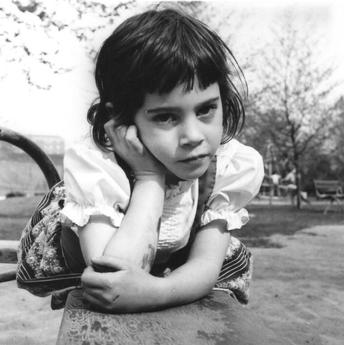 Just try it.
Just try it. In a conversation I had with Dad a month before he died, I decided it was time to start asking him the questions I wanted answered, rather than simply following his thought patterns.
I'd spent several months following his commentary on the mathematician Alfred Tarski (whom Dad saw speak on the day I was born), the director Alexander Korda (whose family was given family names by the Austro-Hungarian Empire, as presumably ours was), and Clara Schumann, among other luminaries in his mind. Now I was getting impatient and a bit fearful: I could see him dying before I got all my questions answered, and then I'd carry around unfinished business for the rest of my life.
So I started asking the question only he could answer: What's it like being my dad? The addresses he'd lived at, the names of the institutions he'd attended and been employed by, the dates of a certain plane trip and the location of the refueling stop for the DC-6 on that trip--these, I began to feel, were topics that maybe could be answered through online research; the kind of research I wanted to do concerned what only Dad knew. The kind of knowledge that would die with him.
That conversation failed spectacularly. The problem was, my sister pointed out recently, that "What's it like being my dad?" is a hard question to answer. If somebody asked me what it was like being the mother of my children, I'd be in trouble. I love my children, but I don't know what loving them is "like." Had I simply asked Dad to tell me a story about when I was a baby, I might have gotten closer to where I wanted to be.
And when I really listen closely to the things he did say, I can capture what I seek. Dad often said he didn't feel competent taking care of babies--that to have some way of interacting with his kids, he took photographs of them. He saw the photos as collaborations between himself and the subjects. If I need to know more about those relationships, I can look at his body of artistic work.
That, and my memories, and others' memories, and a whole bunch of letters. These are the only relics I have to go on. And they will have to do.
I'd spent several months following his commentary on the mathematician Alfred Tarski (whom Dad saw speak on the day I was born), the director Alexander Korda (whose family was given family names by the Austro-Hungarian Empire, as presumably ours was), and Clara Schumann, among other luminaries in his mind. Now I was getting impatient and a bit fearful: I could see him dying before I got all my questions answered, and then I'd carry around unfinished business for the rest of my life.
So I started asking the question only he could answer: What's it like being my dad? The addresses he'd lived at, the names of the institutions he'd attended and been employed by, the dates of a certain plane trip and the location of the refueling stop for the DC-6 on that trip--these, I began to feel, were topics that maybe could be answered through online research; the kind of research I wanted to do concerned what only Dad knew. The kind of knowledge that would die with him.
That conversation failed spectacularly. The problem was, my sister pointed out recently, that "What's it like being my dad?" is a hard question to answer. If somebody asked me what it was like being the mother of my children, I'd be in trouble. I love my children, but I don't know what loving them is "like." Had I simply asked Dad to tell me a story about when I was a baby, I might have gotten closer to where I wanted to be.
And when I really listen closely to the things he did say, I can capture what I seek. Dad often said he didn't feel competent taking care of babies--that to have some way of interacting with his kids, he took photographs of them. He saw the photos as collaborations between himself and the subjects. If I need to know more about those relationships, I can look at his body of artistic work.
That, and my memories, and others' memories, and a whole bunch of letters. These are the only relics I have to go on. And they will have to do.
 RSS Feed
RSS Feed